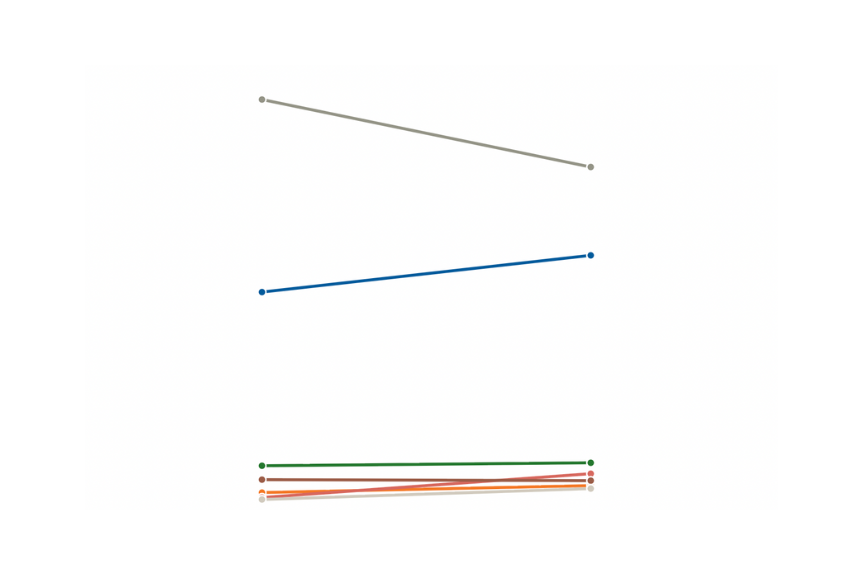Can Democracies Change the World?
Can Democracies Change the World?
In a new article for Poder magazine, COA Vice President Eric Farnsworth examines proposals by U.S. presidential candidates to create a body of democratic nations, saying, "If carefully constructed, this may be an idea whose time has come." He recommends that past examples be taken into account to avoid the mistakes and build on the successes of predecessors.
Imagine a world in which like-minded nations work together to build a common agenda for the broader good. It’s the holy grail of international relations. Many attempts have been made, some successful, some dismal failures. But in the post 9/11 world, the question takes on new urgency as we attempt to figure out what comes next.
The U.S. presidential campaigns are abuzz with discussion. The most promising ideas constitute a formalized grouping of democracies that builds on the lessons of the past.
Of course, efforts to promote international collective action have been tried before, including the United Nations and its predecessor, the League of Nations. Both of these emerged from an idealistic Western view (in fact, an almost uniquely American view) of the world as an anarchic system that had to be tamed by public-spirited leaders and nations working toward a common global good. From these impulses also sprang groupings such as ASEAN in Asia, the OAU in Africa, and the Organization of American States. On the military side, NATO has kept the peace in Europe since just after World War II, and has now expanded “beyond borders” to operate most recently in Afghanistan. On financial matters, international institutions such as the IMF, World Bank, and their regional counterparts including the Asian Development Bank and the Inter-American Development Bank were established, while periodic meetings of G8 leaders attempt to coordinate global financial affairs. Global trade relations have been governed for 60 years by the GATT and its successor organization, the WTO. Other bodies abound.
Much good has been accomplished. Indeed, since World War II, global systemic conflict (World War III)
and economic depression such as that seen in the 1930s have so far been avoided. And yet, despite this well-intentioned web of alliances, groupings, regimes, and bodies, the world remains a chaotic place where entire nations such as Burma or Sudan remain subject to the whims of despots willing to sacrifice populations for their own power lust. Nations such as Iran and North Korea continue to threaten global relations through their nuclear ambitions. Tools of democracy are increasingly being utilized by antidemocratic leaders to gain and then consolidate power while working to undermine their democratic neighbors, some in our own hemisphere. Other, truly global issues including global warming and humanitarian crises also remain unaddressed.
And it’s exactly these issues that are absorbing much of the foreign policy brain power advising each respective presidential campaign. At the core of these efforts is the desire among both Democrats and Republicans to find ways to address collectively the most vexing international issues facing us, and to do so in a way that protects and promotes the U.S. national interest while also advancing the causes of nations that share similar values of open market democracy and the rule of law.
For example, senior advisors to the Obama campaign have been promoting what they call a “Concert of Democracies,” a grouping of nations that would also seek to work within the UN and other bodies until such time as their efforts were frustrated. At that point, the group would work to legitimize further of actions outside the UN, which could include the use of force. Senator McCain has outlined what he calls a “League of Democracies,” the purpose of which would also be to address pressing issues with like-minded states. Because the campaigns are actively pursuing such an approach, it is likely that no matter who is elected, some form of grouping of democracies will be promoted as an important aspect of U.S. foreign policy beginning in 2009.
With that in mind, the question must be asked how such an idea would apply to the Americas, and whether it would work. In fact, we already have two groupings of democracies in the hemisphere that serve as important test cases in terms of what currently works and what does not.
The OAS is by self-definition a grouping of democracies, Cuba having been cast out in the 1960s. In fact, its “Democracy Clause” committing all hemispheric nations to democratic governance was signed in Peru on September 11, 2001, thus serving as an important vehicle to update the institution and to make it more relevant to addressing the problems of the 21st century. Even so, despite often heroic efforts, the OAS has at times had real difficulties in organizing collective actions in the Americas in support of threatened democratic institutions. It also has had difficulties in resisting unhelpful outside influences, such as growing hemispheric linkages with Iran. This is for several reasons, not the least of which is a traditional, virtually all-consuming allergy to actions that could be perceived as infringing the sovereignty of any member state. As well, many member states continue to view the OAS as a forum more useful to restricting the freedom of action of the United States, rather than working together to promote a common, mutually-beneficial hemispheric vision and agenda to achieve it.
In addition to the OAS, the Summit of the Americas is another club of all the countries in the Western Hemisphere except Cuba. The 1994 Summit in Miami laid out a comprehensive agenda for reform that remains largely unfulfilled, and the agendas of subsequent Summits have increasingly been negotiated down to the lowest common denominator. The Summits have mostly become aspirational, and the planned April 2009 Summit in Trinidad and Tobago will be an important indicator of whether the process remains a useful and viable vehicle for the advancement of hemispheric relations.
In contrast, the most successful examples of collective action in the hemisphere have generally arisen when objectives are well-defined and realistic (e.g. preventing cross-border conflict between two competing nations vs. ending poverty), and where nations having a direct interest in the outcome self-select their participation. Examples include the ongoing peacekeeping mission in Haiti, as well as the peacekeeping operation on the border between Ecuador and Peru and steps to guarantee democracy in Guatemala and Paraguay in the 1990s.
Therefore, for a global league or concert of democracies to be successful, the vision will need to be defined further. Just because nations are democratic does not mean they see the world in the same way or that they will necessarily collaborate to address common threats. Indeed, they may have a very different view of the nature of the threats they respectively face. During the 2003 UN Security Council debate on the use of force in Iraq, neither Chile nor Mexico viewed Iraq as much of a threat to their own interests, but given history and geography, they certainly saw authorization of extra-regional preemptive action by the United States as potentially threatening. As a result, if participating democracies view a league or concert primarily as yet another opportunity to tie down Gulliver, it will prove to be a mismatch.
Second, by definition, such a body will only be effective if it (1) can develop a mechanism to address complex issues in a timely manner, and (2) actually implements its decisions evenhandedly, with burden sharing and mutual obligations. The world doesn’t need another talkshop. That means concrete steps to end the horrors of Darfur or to get timely humanitarian assistance to the desperate cyclone survivors in Burma. (In the early 1990s, a concert of democracies would have been called upon to end the butchery in Rwanda.) It also means that, where democracy is threatened, including in our hemisphere, democratic nations must be willing to join together to take steps to promote and defend democracy.
Third, expectations for what a global grouping of democracies can achieve must first and foremost be realistic. Democracies that share values and are organized to resist common external threats can be successful. Democracies will be less likely to succeed if they organize themselves to promote an agenda that is only generally defined, if they see themselves in competition with each other for regional (including commercial) influence, or if they do not share a common calculus of external threats.
In the Americas, this means there will be some nations that will want to participate in a global grouping of democracies; others, despite being democratic, will not care to do so. Still others may want to do so, but for the wrong reasons; this should be resisted. Nonetheless, whatever a final grouping of democratic nations looks like, certain issues in the Americas such as support for democracy and also the environment cry out for a new and potentially game-changing approach. If carefully constructed, this may be an idea whose time has come.








